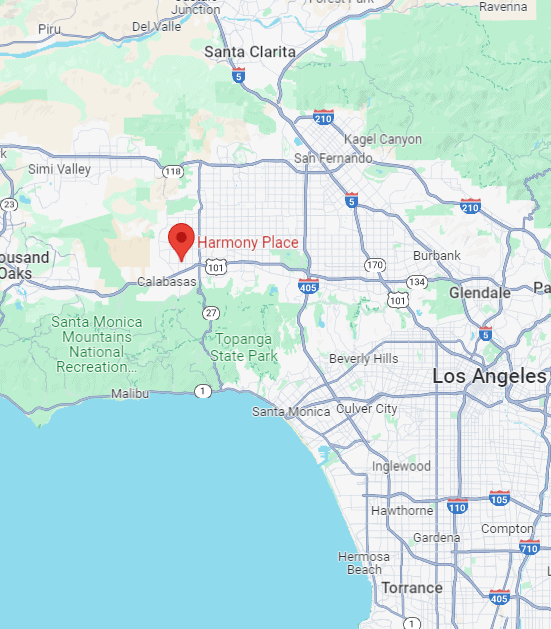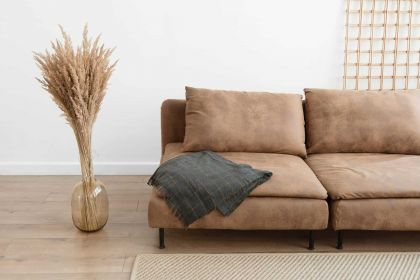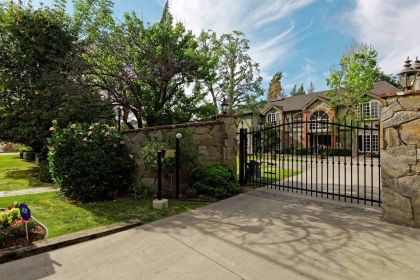Rehab for Women’s Addiction Treatment in Los Angeles, CA
Harmony Place has three facilities that specialize in women’s rehab in Los Angeles, CA. Our dedicated team provides comprehensive and compassionate addiction program care tailored to the specific needs of women seeking recovery. Each center provides a stable and nurturing setting to support you in maintaining and enduring sobriety.
Harmony Place Rehab Center accepts a variety of health insurance plans for women’s addiction treatment. We encourage you to contact us to learn more about your insurance coverage levels for therapy at our women’s rehab center in Los Angeles, CA. Our team is ready to guide you through the insurance verification process, helping you receive the support you need for your recovery journey. Call us to get started.
What Are Women-Only Rehabs in California?
Women-only rehabs in California addresses the distinctive needs of women in recovery. At a women’s rehab center in Los Angeles, CA, specialized restorative plans are tailored to the challenges faced by women struggling with addiction. This female-focused rehab facility offers a safe and helpful environment where women can heal and rebuild their lives.
At these women’s addiction treatment centers, women receive comprehensive remedies that incorporate individual counseling, group therapy, and holistic treatments. Located in beautiful areas like the Valley and Pasadena, these facilities provide a serene and nurturing setting that promotes recovery. Focusing on women’s specific needs, these programs help ensure a comprehensive and effective path to sobriety.
Why Attend a Gender-Specific Women’s Rehab in Los Angeles?
Attending a gender-specific Women’s rehab in Los Angeles, offers benefits tailored to females. A women’s drug rehab in Los Angeles, CA, provides a safe and validating space where you can work on your recovery without the distractions or pressures of a mixed-gender setting. This women’s centered rehab approach addresses the psychological, emotional, and social elements that contribute to addiction.
A women’s recovery program also fosters community and understanding among participants. Located in serene areas like Pacific Palisades and Malibu, these facilities offer a peaceful backdrop for healing and reflection. The specialized care and attention provided at these centers ensure that women receive the comprehensive help needed to achieve lasting sobriety and rebuild their lives.
What Is a Medical Detoxification Center for Females in Los Angeles?
A medical detoxification center for females in Los Angeles offers specialized care for safe withdrawal from drugs or alcohol. In Los Angeles, CA, women’s rehab facilities like Harmony Place, healthcare professionals closely monitor the detox process to manage withdrawal symptoms and ensure comfort. This essential step prepares you for further treatment in a women’s recovery program.
Located near the serene Pacific Ocean and Santa Monica Beach, these gender-specific rehabilitation centers offer a tranquil environment conducive to healing. Harmony Place Treatment Center and similar facilities provide a complete approach to detoxification, combining medical care with emotional and psychological support. This method ensures you receive the specialized care needed to achieve your sobriety goals.
Los Angeles Drug and Alcohol Addiction Info and Stats in Females
In Los Angeles, alcohol and drug addiction pose significant challenges for women. Over 59,000 women in the U.S. die annually from excessive alcohol use. However, California, including Los Angeles, has 2,195 substance abuse treatment centers, serving 96,960 patients yearly, with a focus on tailored programs for women.
Furthermore, the landscape of substance use among females reveals some concerning trends, though not without glimpses of hope. While 22.6% of adults aged 26 and older engage in binge drinking, a practice not uncommon in Los Angeles’ vibrant night scene, efforts to curb such behavior have seen varying degrees of success. The decline in past-month alcohol use among youths aged 12 to 20, from 28.8% in 2002 to 18.5% in 2019, suggests a positive shift in early-age drinking habits, though the ripple effects on adult behaviors, especially among women, are yet to be fully understood.
Given the complexities intertwined with mental health, the fact that 1 in 3 young adults reported experiencing serious mental illness in 2020 underlines the urgent need for comprehensive addiction and mental health services in Los Angeles, tailored to meet the unique challenges faced by its female residents.

We Will Check Your Insurance
Which Private Health Insurance Plans Cover Rehab for Women in Los Angeles?
When seeking rehab for women in Los Angeles, it’s essential to know which private health insurance plans provide coverage. Popular providers, including Blue Cross Blue Shield, Aetna, Cigna, and UnitedHealthcare, include plans that cover various facets of addiction treatment, including inpatient and outpatient services. These plans reduce the financial commitment to treatment at facilities like Harmony Place Addiction Recovery.
Harmony Place Drug and Alcohol Treatment offers specialized care, including Los Angeles, CA, women’s alcohol rehab, women’s trauma-informed care, and gender-sensitive addiction counseling. Contact your insurance provider or Harmony Place to verify which treatments and services your insurance covers. This will help you access the comprehensive care you need to achieve lasting recovery in a supportive and understanding environment.
How Much Is Addiction Treatment for Females Without Health Insurance Support?
When it comes to getting help with addiction treatment, women without commercial insurance have options at varying addiction treatment costs. The most affordable programs start at $1,750 for medical detoxification. Inpatient rehabilitation costs $6,000 monthly, and a three-month outpatient program costs around $5,000. Many women’s rehab facilities provide financial assistance and flexible payment plans.
Many rehab centers offer financial assistance and sliding-scale plans to make treatment more accessible. These financial options can be crucial for women seeking specialized care, such as dual diagnosis treatment. Similar to male-friendly addiction therapy programs, women’s rehab centers often have tailored financial aid options. Contacting treatment centers directly will provide more information on available financial aid, helping you find a program that fits your budget and meets your needs.

How to Find a Women’s Addiction Treatment Center in Los Angeles, California
Discovering the right drug and alcohol addiction treatment program for females in Greater Los Angeles can be challenging. With numerous options available, it’s essential to consider your specific needs and tastes. Whether you’re looking for inpatient, outpatient, or specialized care, Harmony Place offers a variety of programs to support you. Call us for personalized assistance.
Female Inpatient Rehab Centers in Woodland Hills
Woodland Hills boasts premier female inpatient rehab centers that provide comprehensive and supportive care for women like you on a recovery journey. These facilities accept insurance, ensuring you can access the necessary treatment. These centers also create a safe and calming environment, empowering women to achieve lasting sobriety.
- Harmony Place – 23041 Hatteras St, Woodland Hills, CA 91367 – Residential Treatment
- Harmony Place East – 22913 Burbank Blvd, Woodland Hills, CA 91367 – Residential Treatment
Women’s Outpatient Rehab Centers in Woodland Hills
Woodland Hills offers exceptional women’s outpatient rehab centers that provide flexible, high-quality care for women in recovery. These facilities accept insurance, ensuring you can access the support you need without financial stress.
- Valley Restoration Center – 22900 Ventura Blvd, Ste 314, Woodland Hills, CA 91364 – Outpatient
Experience personalized, compassionate care designed to help you achieve lasting sobriety.
Alternative Ways to Find Women’s Rehab Options in Los Angeles
A women’s residential rehab program offers a supportive and nurturing atmosphere tailored to the specialized needs of women in recovery. Emphasizing female-focused holistic treatment, these programs address both the physical and emotional aspects of addiction. Through extensive care and personalized therapies, women can achieve lasting sobriety. Follow these steps to find gender-responsive rehab services:
- Research Online: Focus on search terms that use the keywords “women’s substance abuse treatment” or “women’s mental health treatment” when looking on Google or Bing. Using terms like this makes you more likely to find what you seek.
- Check Directories: Use online directories to find nearby rehab centers easily. These directories provide comprehensive listings and detailed information about each facility, making it simple to compare options and choose the best fit for your needs. They include reviews, services offered, and contact details, helping you make an informed decision on your path to recovery.
- Consult with Your Doctor or Therapist: Contact professionals for personalized recommendations for your unique needs. They can provide valuable information and suggest the best therapy and medical options based on your specific situation, ensuring you get the support and care that’s right for you.
- Ask for Recommendations: Talk to friends, family, or support groups for advice. They can offer personal experiences, recommendations, and emotional support, helping you find suitable treatment options and feel more confident in your choices.
- Call the Facility: Once you’ve identified potential centers, call to ask about their services, costs, and insurance coverage.
Using these methods, you can find the right women’s rehab options in Los Angeles to support your recovery.
What Is Treated at a Female Drug & Alcohol Addiction Treatment Program in Southern California?
At a female drug and alcohol addiction treatment program in Southern California, a wide range of substance use disorders and co-occurring cognitive health issues are addressed. Discover our specialized programs providing tailored care for women’s unique needs, including alcohol dependency, drug addiction, and dual-diagnosis conditions. The following sub-headings will explore the specific treatments and therapies provided to support women’s recovery.
Alcohol Addiction Treatment Programs
In Southern California, alcohol addiction treatment programs for women offer comprehensive care designed specifically to meet the individual needs of female clients. These programs encompass medical detox and individual and group therapy, incorporating holistic approaches such as mindfulness and yoga.
Benzodiazepine Addiction Treatment Programs
Benzodiazepine addiction treatment programs for women in Southern California offer specialized care to help individuals safely detox from these medications. These programs combine medical supervision with therapies such as cognitive behavioral therapy (CBT) and trauma-informed care to address the underlying causes of addiction.
Cocaine Addiction Treatment Programs
Our cocaine addiction treatment programs for women offer a supportive and structured environment to empower recovery. With personalized medical detox, empowering therapies, and tailored support groups, we’re committed to addressing women’s unique needs.
Heroin Addiction Treatment Programs
Southern California’s heroin addiction treatment programs provide strong support for women overcoming this challenging addiction. Our comprehensive approach includes medical detox, medication-assisted treatment (MAT), and a range of therapeutic modalities, offering holistic support and gender-sensitive addiction counseling in LA’s vibrant location.
Marijuana Addiction Treatment Programs
Marijuana addiction treatment programs for women provide a supportive environment to address dependency on cannabis. These programs use a combination of individual counseling, group therapy, and holistic approaches to treat addiction. Focusing on women’s unique needs, these programs help individuals develop healthy coping mechanisms and achieve long-term recovery.
Meth Addiction Treatment Programs
Meth addiction treatment programs in Southern California are designed to help women overcome the severe effects of methamphetamine dependency. These programs include medical detox, cognitive behavioral therapy (CBT), and support groups tailored for women. By addressing both the immediate and long-term challenges of meth addiction, these programs provide a path to lasting recovery and relapse prevention.
Opioid Addiction Treatment Programs
Opioid addiction treatment programs for women offer comprehensive care that offers medical detox, medication-assisted treatment (MAT), and a range of therapeutic interventions. These programs address the complex nature of opioid addiction, providing women with the support and resources needed to achieve and maintain sobriety.
How Substance Abuse Affects A Woman’s Brain
A review of the addiction literature shows fundamental differences between how men and women experience addiction. For example, an adolescent male drinker most commonly experiences a decreased attention span, while an adolescent female is more likely to experience a decrease in spatial reasoning skills.
Women who are susceptible to drug or alcohol abuse are also more likely to experience other co-occurring mental health disorders. Like an addiction, these disorders take control over a woman’s autonomy. Anorexia nervosa, bulimia, self-harm, suicide, anxiety, and depression are common examples. Additionally, the presence of childhood trauma, particularly sexual abuse, predisposes women to develop a substance abuse disorder.
Even different substances may affect women differently than men. Some of the most notable differences address opioid addiction, alcohol addiction, and dependence on benzodiazepines.
Opioid Use And Women
Opioid addiction continues to increase at a concerning rate for both men and women across the United States. Although women experience less mortality with regard to opioid overdose than men, heroin and opioid use among women still presents a major problem. Between 1999 and 2015, prescription opioid-related deaths increased 471% among women. Comparatively, men only experienced a 218% increase. Heroin deaths also jumped at a two-fold increase compared to men. Synthetic opioids pose the greatest risk, as death among women related to these drugs jumped 850% between 1999 and 2015. In short, we are losing women’s lives to opioid addiction at an exponentially faster rate than men, yet many states do not have appropriate interventions in place to save them.
While we know that addiction appears to progress more quickly in women than in men, we still don’t fully understand why these differences occur. However, the Centers for Disease Control and Prevention highlights some reasons why women and men experience opioid addiction differently. For example, women are more likely to complain of chronic pain and are more likely to use prescription opioids at higher doses, for a longer period of time. There is also some evidence that women may experience more cravings than men.
Opioid Addiction Treatment For Women
Women experience special barriers for accessing quality treatment options. Women are more likely to be caregivers in a household, and may face barriers to treatment like lack of child care. Women also have more complex recovery needs – evidence suggests that women who enter treatment for substance use disorders present with medical, social, and behavioral problems that are more severe than men.
Another problem with substance abuse treatment is that women are more likely to fear the consequences of getting help. In many states, women with children can be reported to CPS for admitting to using illicit drugs, which may result in losing custody of their children. Since seeking help can lead to criminal justice, many women choose to suffer in silence. Removing these barriers would significantly improve the rate at which women seek treatment for substance use disorders.
Alcoholism And Women
Alcoholism among women is also increasing, particularly among white women. According to a recent analysis by the Washington Post, binge drinking among women has increased 40% since 1997, and more than a quarter of women admit to drinking multiple times a week. More than a million women wound up in the nation’s emergency departments for conditions related to heavy drinking in 2013, and middle-aged women are the most likely to report with severe intoxication.
In part, this is due to a cultural normalization of drinking. On social media, there are countless videos in which women recount the exhaustion of motherhood while consuming a bottle of wine. This normalization has also lead to an increase in mortality, particularly among middle-aged women. The rate of death among women aged 35-54 related to alcohol has doubled since 1999.
Woman’s Alcoholism Treatment
Alcoholism is on the rise among women, not only because it has become more culturally normalized, but because substance abuse disorders progress more quickly in women than they do in men. While there are plenty of viable treatment options for women who struggle with an alcohol-use disorder, women face more natural obstacles that prevent them from seeking help. Notably, women struggle to fit alcohol treatment into their already overloaded schedule.
One of the biggest reasons that alcoholism in women is growing is because of social norms – and we can’t talk about social norms without mentioning social media. If you look on social media, you will see how alcohol is much more prevalent in women’s lives today than ever before.
Alcohol causes many emotional and mental health issues in both men and women. Women, by nature, are more in-touch with their emotions, and their emotions play a much larger role in decision making and choices than men. Since alcohol causes wide variations in emotions, alcohol is more likely to cause women to make bad emotionally-based decisions.
There is some evidence that group therapy tends to benefit women more, as it allows them an opportunity to see that they’re not alone. However, because of the stigma involved with residential treatment, women are more likely to elect individual therapy and outpatient recovery options. Alcoholism in women requires a unique approach that respects a woman’s busy schedule and need for community.
Benzodiazepine Addiction And Women
Benzodiazepines are psychoactive drugs that a physician may prescribe to treat anxiety disorders, insomnia, or panic disorders. Although they can be effective, they are also addictive. Unfortunately, panic and anxiety disorders are more common in women than in men, so they receive a disproportionate number of benzodiazepine prescriptions. They’re also more vulnerable to a subsequent benzodiazepine-use disorder.
The most likely people to have a benzo prescription are women, and the number increases with age. Women between the ages of 65 to 80 are the most likely to have a benzodiazepine prescription. Overdose deaths due to benzos are increasing at an alarming rate – in fact, they’ve quadrupled since 1999 and are still rising.
Benzodiazepine Addiction Treatment For Women
Women will benefit from targeted treatments for the quicker progression of their substance use disorder. Since benzodiazepine addictions often stem from co-occurring mental health conditions like anxiety and panic disorders, addressing these conditions without the use of addictive medications is essential for a long-lasting recovery.
What Mental Health Therapies Are Used in Women’s Rehab in Los Angeles?
In addressing the complexities of addiction, especially within the context of female rehab in Los Angeles, a multifaceted approach toward mental health therapy is paramount. This comprehensive strategy encompasses various therapeutic frameworks, each designed to cater to the unique psychological needs and challenges women face during recovery. Below is an in-depth exploration of the mental health therapies commonly utilized:
What Is a Typical Day at Rehab for Women Like?
A typical day at a women’s residential rehab program in LA is designed to provide structure and support in a serene environment. Surrounded by the sand and sunshine of the Southern California desert, facilities like Harmony Place Drug and Alcohol Treatment offer a tranquil setting for recovery. Each day combines therapy, wellness activities, and personal time for reflection.
Your day begins with a healthy breakfast, followed by individual and group therapy sessions to address the emotional and psychological aspects of addiction. Afternoons might include holistic activities such as yoga or mindfulness practice, with time to enjoy the beauty of the desert. Evenings often feature recreational activities like watching movies or attending local cultural events like those at the Hollywood Bowl, providing a balanced and enriching recovery experience.
Cognitive Behavioral Therapy (CBT)
CBT is a cornerstone in addiction treatment, focusing on identifying and restructuring negative thought patterns. It equips individuals with strategies to manage stressful situations and counteract tendencies that may lead to substance use. Through CBT, women learn to dismantle the cognitive distortions contributing to their addiction.
Group and Individual Therapy
Both modalities serve crucial roles. Individual therapy offers a private setting for in-depth exploration of personal issues under the guidance of a therapist, fostering personalized recovery strategies. Conversely, group therapy provides a supportive community environment where women can share experiences and learn from others facing similar challenges, fostering a sense of belonging and mutual support.
Dialectical Behavior Therapy (DBT)
Particularly effective for individuals with dual diagnoses or those who struggle with emotional regulation, DBT combines CBT principles with mindfulness. It teaches skills in four main areas: mindfulness, distress tolerance, interpersonal effectiveness, and emotional regulation. DBT is impactful in helping women navigate the intense emotions often associated with addiction recovery.
Acceptance and Commitment Therapy (ACT)
ACT motivates you to embrace your thoughts, emotions, and feelings rather than fighting or feeling guilty about them. It focuses on values, forgiveness, acceptance, and commitment to change, promoting psychological flexibility to improve quality of life.
Psychodynamic Therapy
This therapy delves into how past experiences and unresolved conflicts influence current behavior and addiction patterns. It aims to bring these unconscious processes to the forefront, allowing women to address and heal from them.
Trauma-Informed Therapy
Given the high prevalence of trauma in women with addiction issues, trauma-informed therapy is indispensable. It recognizes the role of trauma in addiction and seeks to treat both concurrently, creating an environment of safety, empowerment, and healing.
Family Therapy
Addiction is often seen as a systemic issue that can affect the entire family. Family therapy involves the family in the recovery process, addressing dysfunctional dynamics and improving communication and support structures within the family unit.
Mindfulness-Based Therapy
This therapeutic approach promotes increased awareness of the present moment, helping individuals to detach from habitual, emotional, and physiological reactions to everyday life. It’s particularly beneficial in managing cravings and emotional distress.
Holistic Therapies
Complementing traditional therapies, holistic approaches may include yoga, meditation, art therapy, and equine therapy. These therapies aim to heal the mind, body, and spirit, offering alternative outlets for expression and self-discovery.

What Is the Process to Women’s Rehab in Los Angeles, CA?
The treatment admissions process to women’s rehab in Los Angeles follows a structured approach similar to most rehab programs, with personalized care to meet individual needs. Initially, you will undergo a thorough assessment to create a tailored treatment plan. This plan typically starts with medical detox to safely manage withdrawal symptoms under professional supervision.
Following detox, the core of the rehab process includes various therapies and counseling sessions, such as individual and group therapy. Facilities near prestigious institutions like UCLA and USC offer access to cutting-edge treatment methods. Additionally, recreational activities like watching Lakers or Dodgers games may be incorporated to provide a balanced recovery experience, fostering a supportive and motivating environment.
Take the Next Step with Harmony Place Women’s Rehab in Los Angeles
At Harmony Place, we know that choosing the right women’s addiction treatment in Los Angeles is a life-changing decision. Our women’s rehab center is more than a program—it’s a supportive community where women find strength, healing, and connection. Whether you’re seeking women’s sober living in Los Angeles or long-term care, we provide the foundation for lasting recovery.
If you or a loved one needs a rehab for women in California, our compassionate admissions team is ready to guide you. We accept many insurance plans and help simplify the process, so cost doesn’t stand in the way of treatment. Contact Harmony Place today to begin your recovery journey at one of the most trusted women-only rehabs in California.
Recovery Programs Available in Los Angeles & Across CA
Harmony Place delivers high-quality treatment programs in Los Angeles and throughout California. From inpatient care to specialized recovery services, each program is structured to support meaningful, long-term healing. Explore the treatment options below to find care that fits your needs.
- Los Angeles Residential Inpatient Treatment
- Outpatient Rehab Services in CA
- Private Luxury Treatment near LA
- California Women’s Rehab Programs
- Men’s Treatment Services in Southern California
- PHP Treatment Programs in Los Angeles
- Veterans Rehab Options across California
- REBT Techniques in SoCal
- Sober Living in Southern California
- Faith-Based Rehab near Los Angeles
- LGBTQ+ Treatment Options in CA
- Couples Rehab in Los Angeles
Greater Los Angeles Addiction Statistics and Info Among Women
- The Alcohol-Related Disease Impact (ARDI) application estimates that excessive alcohol use causes over 178,000 deaths each year in the United States, including around 120,000 men and 59,000 women. This makes alcohol one of the leading preventable causes of death, following tobacco use, poor diet, physical inactivity, and illegal drug use.
- California is home to 2,195 active substance abuse treatment centers, serving 96,960 patients annually. Of these, 83,534 patients are enrolled in outpatient services. The state allocates 6.16%, or $142.3 million, of the U.S. public’s total expenditure on outpatient services.
- Among people aged 12 to 20, past month alcohol use declined from 28.8% (10.7 million) in 2002 to 18.5% (7.0 million) in 2019. Binge alcohol use decreased from 13.4% (5.1 million) in 2015 to 11.1% (4.2 million) in 2019, and heavy alcohol use fell from 3.3% (1.3 million) in 2015 to 2.2% (825,000) in 2019.
- Among adults aged 26 and older, 22.6% engage in binge drinking, and 10.4% have an alcohol use disorder. Prescription opioid misuse affects 3.1%, while 20.6% use marijuana and 1.8% use cocaine. Overall, 23.7% of adults use illicit drugs, with 6.1% having an illicit drug use disorder. In total, 16.6% of this age group suffers from a substance use disorder (SUD).
- Nationally in 2020, 1 in 3 young adults reported experiencing serious mental illness.
- In 2015, out of the 20.5 million people in America 12 or older with a substance use disorder, 2 million struggled with a disorder including prescription pain medications, and 591,000 had a disorder involving heroin.
The Favorite Towns and Attractions of Greater Los Angeles
Greater Los Angeles in Southern California offers a vibrant mix of popular towns and attractions. From the bustling streets of DTLA to the iconic Hollywood Walk of Fame, there’s something for everyone. Known as the Golden State, LA has diverse neighborhoods and cultural landmarks that captivate residents and visitors alike.
Exploring Greater Los Angeles reveals a wealth of attractions, from the upscale shopping in Beverly Hills to the scenic beauty of Santa Monica Beach. The region’s unique blend of urban and natural environments makes it a prime destination for those seeking entertainment, relaxation, and adventure. Whether you’re strolling through DTLA or visiting attractions, including the well-known Hollywood Walk of Fame or Beverly Hills, SoCal embodies the dynamic spirit of Southern California.


















